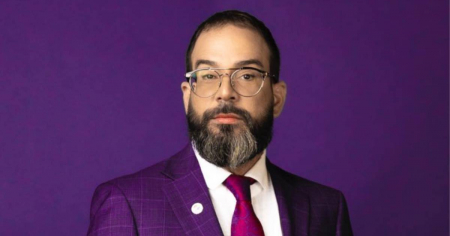The United States government deported a new group of alleged gang members to El Salvador, as part of its cooperation policy with the Central American country in the fight against organized crime.
The Secretary of State, Marco Rubio, described the operation as a success in security and the fight against transnational crime.
Through his account on X and in a statement published by the Department he leads, Rubio highlighted that "last night, in a successful counter-terrorism operation with our allies in El Salvador, the United States military transferred a group of 17 violent criminals from the Tren de Aragua and MS-13 organizations, including murderers and rapists."
Rubio also emphasized that the designation of the Tren de Aragua and MS-13 as "Foreign Terrorist Organizations" by President Donald Trump strengthens Washington's strategy to combat the influence of these groups on U.S. soil. "These criminals will no longer terrorize our communities and citizens", he stressed.
The president of El Salvador Nayib Bukele confirmed the arrival of the group, which he stated was composed of “confirmed murderers and high-profile criminals, including six child rapists.”
Furthermore, the Central American leader stated that the "operation is another step in the fight against terrorism and organized crime."
In the message from the U.S. Secretary of State, he took the opportunity to thank the Salvadoran president for his support in the fight against organized crime. "Once again, we extend our gratitude to @nayibbukele and the government of El Salvador for their unmatched collaboration in making our countries safe against transnational crime and terrorism."
In mid-March, a group of 238 members of the Tren de Aragua arrived in El Salvador, sent by the United States to be incarcerated in a maximum-security prison.
The criminals were immediately transferred to the Center for the Incarceration of Terrorists (CECOT), where they will serve an initial incarceration of one year, subject to renewal as determined by the Salvadoran government.
The Aragua Train, formed in the Venezuelan prison of Tocorón in 2014, is linked to murders, kidnappings, thefts, drug trafficking, prostitution, extortion, and human trafficking. According to the portal Infobae, its expansion has reached countries such as Colombia, Chile, Peru, and the United States.
In February, the Trump administration designated this organization as a global threat and a key player in transnational crime.
Trump and Bukele have announced a bilateral meeting for April at the White House. The meeting will take place in "recognition of Bukele's collaboration in the fight against organized crime," according to a post by independent journalist Nick Sortor, co-host of the program "Roundtable Space."
The exchanges between both nations are currently thriving. Recently, the U.S. Secretary of Homeland Security, Kristi Noem, visited the CECOT, and from there she issued a warning to undocumented immigrants: "Do not come to our country illegally. You will be expelled and prosecuted."
In exchange for receiving these gang members, El Salvador is compensated with a payment for their custody, according to Bukele himself.
Frequently Asked Questions about the Deportation of Gang Members to El Salvador
Why does the United States deport gang members to El Salvador?
The United States deports gang members to El Salvador as part of a cooperation policy in the fight against organized crime. This measure aims to reduce the influence of criminal groups such as the Tren de Aragua and MS-13 on U.S. territory. The U.S. government considers these gangs to be foreign terrorist organizations, allowing for a more aggressive approach to their eradication.
Which criminal groups have been designated as terrorist organizations by the United States?
The United States has designated several criminal groups as foreign terrorist organizations, including the Venezuelan gang Tren de Aragua and Mara Salvatrucha (MS-13). This designation allows the U.S. government to implement stricter measures to combat their criminal activities both within and outside the country.
What role does El Salvador play in the arrest of these gang members?
El Salvador has agreed to receive these gang members at the Terrorist Detention Center (CECOT), where they will initially serve one year of confinement. This agreement is part of a collaboration between the United States and El Salvador in the fight against organized crime, through which El Salvador receives financial compensation for housing these criminals.
What benefits does El Salvador gain from this agreement with the United States?
El Salvador receives a payment for the custody of deported gang members, which helps sustain its penitentiary system. Additionally, the agreement bolsters President Nayib Bukele's security strategy and provides valuable intelligence to continue the fight against organized crime in the country.
How has this agreement affected the relationship between the United States and El Salvador?
The relationship between the United States and El Salvador has strengthened due to their collaboration on security and migration issues. This agreement is seen as an acknowledgment of El Salvador's cooperation in the fight against transnational crime, which has improved the bilateral ties between both nations.
Filed under:
